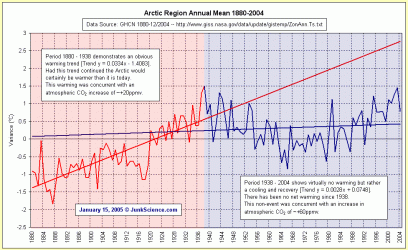Um last time I check the so called experts were saying CO2 could double, not that it would. Note that most of the scarier climate models all assume that it for sure will double, when that is by no means a certainty.
I'm not sure I see your point or what your correcting me on or whatever. Even if it doubles CO2 would still less than .1% of the atmosphere.

